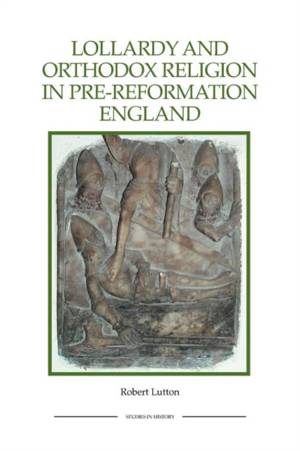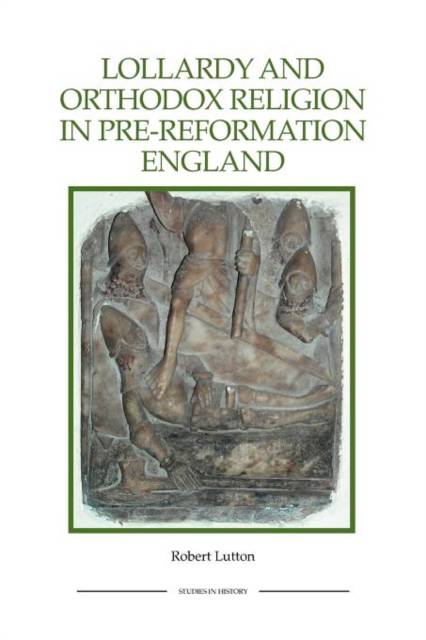
- Retrait gratuit dans votre magasin Club
- 7.000.000 titres dans notre catalogue
- Payer en toute sécurité
- Toujours un magasin près de chez vous
- Retrait gratuit dans votre magasin Club
- 7.000.000 titres dans notre catalogue
- Payer en toute sécurité
- Toujours un magasin près de chez vous
59,95 €
+ 119 points
Format
Description
An account of how, in certain parts of sixteenth-century England, challenges to conventional piety anticipated the Reformation. Here is a richly detailed account of the relationship between Lollard heresy and orthodox religion before the English Reformation. Robert Lutton examines the pious practices and dispositions of families and individuals in relationto the orthodox institutions of parish, chapel and guild, and the beliefs and activities of Wycliffite heretics. He takes issue with portrayals of orthodox religion as buoyant and harmonious, and demonstrates that late medieval piety was increasingly diverse and the parish community far from stable or unified. By investigating the generation of family wealth and changing attitudes to its disposal through inheritance and pious giving in the important Lollard centre of Tenterden in Kent, he suggests that rapid economic development and social change created the conditions for a significant cultural shift. This study contends that in certain parts of England by the early sixteenth century piety was subject to dramatic changes which, in a number of important ways, anticipated the Reformation. Dr ROBERT LUTTON teaches in the Department of History at the University of Nottingham.
Spécifications
Parties prenantes
- Auteur(s) :
- Editeur:
Contenu
- Nombre de pages :
- 256
- Langue:
- Anglais
- Collection :
- Tome:
- n° 52
Caractéristiques
- EAN:
- 9781843836490
- Date de parution :
- 20-10-11
- Format:
- Livre broché
- Format numérique:
- Trade paperback (VS)
- Dimensions :
- 156 mm x 234 mm
- Poids :
- 358 g







